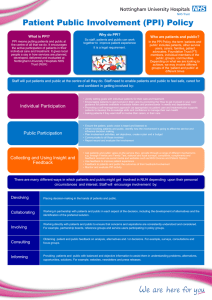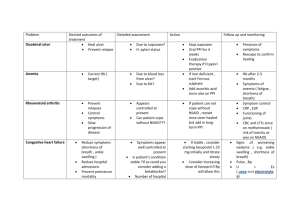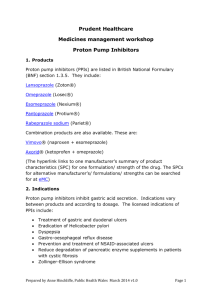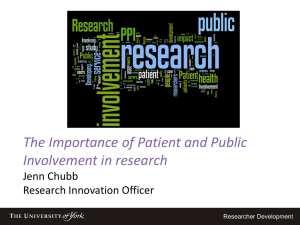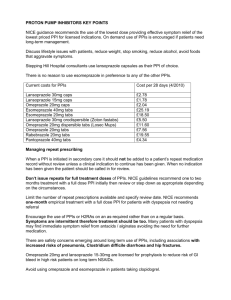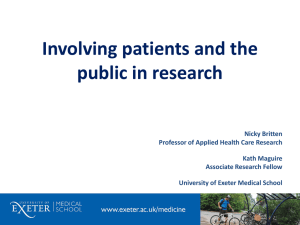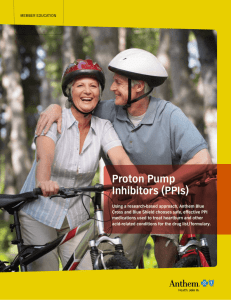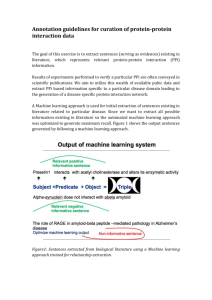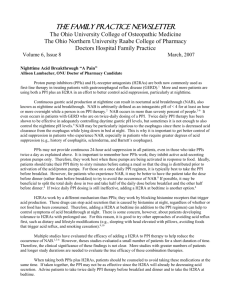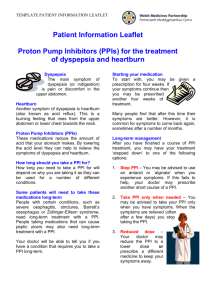New GERD/Ulcer Drug Utilization Management
advertisement
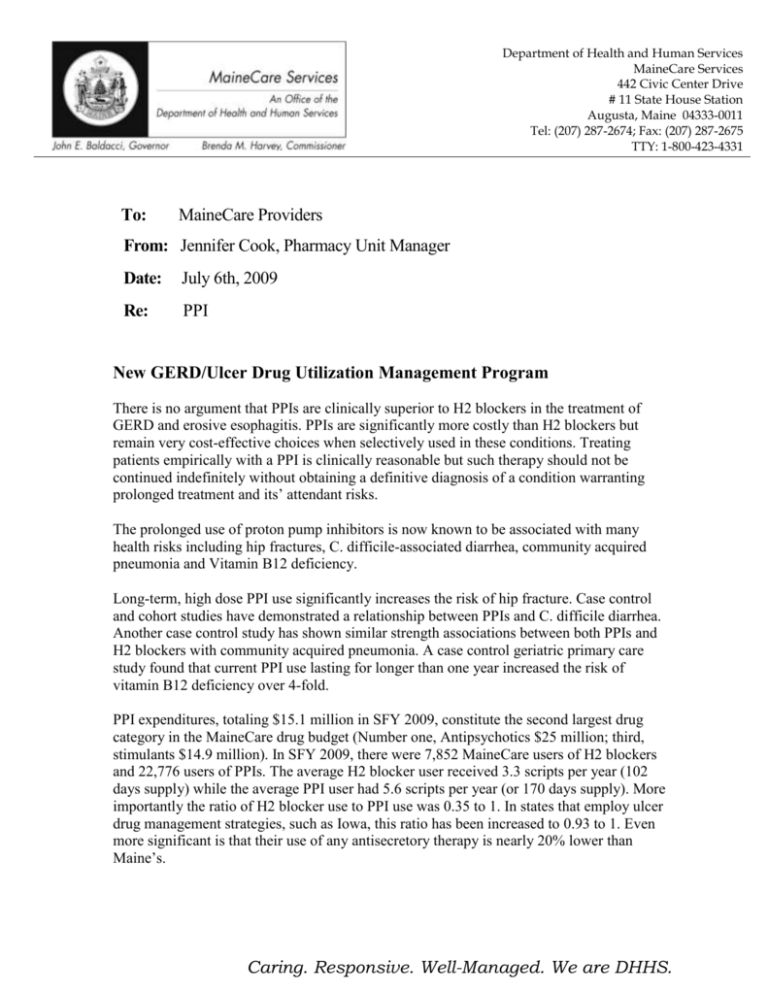
Department of Health and Human Services MaineCare Services 442 Civic Center Drive # 11 State House Station Augusta, Maine 04333-0011 Tel: (207) 287-2674; Fax: (207) 287-2675 TTY: 1-800-423-4331 To: MaineCare Providers From: Jennifer Cook, Pharmacy Unit Manager Date: July 6th, 2009 Re: PPI New GERD/Ulcer Drug Utilization Management Program There is no argument that PPIs are clinically superior to H2 blockers in the treatment of GERD and erosive esophagitis. PPIs are significantly more costly than H2 blockers but remain very cost-effective choices when selectively used in these conditions. Treating patients empirically with a PPI is clinically reasonable but such therapy should not be continued indefinitely without obtaining a definitive diagnosis of a condition warranting prolonged treatment and its’ attendant risks. The prolonged use of proton pump inhibitors is now known to be associated with many health risks including hip fractures, C. difficile-associated diarrhea, community acquired pneumonia and Vitamin B12 deficiency. Long-term, high dose PPI use significantly increases the risk of hip fracture. Case control and cohort studies have demonstrated a relationship between PPIs and C. difficile diarrhea. Another case control study has shown similar strength associations between both PPIs and H2 blockers with community acquired pneumonia. A case control geriatric primary care study found that current PPI use lasting for longer than one year increased the risk of vitamin B12 deficiency over 4-fold. PPI expenditures, totaling $15.1 million in SFY 2009, constitute the second largest drug category in the MaineCare drug budget (Number one, Antipsychotics $25 million; third, stimulants $14.9 million). In SFY 2009, there were 7,852 MaineCare users of H2 blockers and 22,776 users of PPIs. The average H2 blocker user received 3.3 scripts per year (102 days supply) while the average PPI user had 5.6 scripts per year (or 170 days supply). More importantly the ratio of H2 blocker use to PPI use was 0.35 to 1. In states that employ ulcer drug management strategies, such as Iowa, this ratio has been increased to 0.93 to 1. Even more significant is that their use of any antisecretory therapy is nearly 20% lower than Maine’s. Caring. Responsive. Well-Managed. We are DHHS. Accordingly MaineCare will require clinical submissions to support long-term use of PPIs after sixty days of therapy. PPI therapy should not continue indefinitely unless there is confirmation of an appropriate diagnosis. For most uses we will encourage step-down therapy during which the patient is titrated down in PPI dose and/or frequency before switching to H2 blockers. On-demand (prn or intermittent) therapy will also be promoted in selected patients. The review process will also examine how well the long-term risks of PPIs are being considered and mitigated. The following will be the criteria used in determining Prior Authorizations. Prior authorization is not required for a preferred proton pump inhibitor (PPI) for a cumulative 60-days of therapy per 12-month period. Prior authorization will be required for all non-preferred proton pump inhibitors as indicated on the MaineCare Preferred Drug List beginning the first day of therapy. Payment for a non-preferred proton pump inhibitor will be authorized only for cases in which there is documentation of previous trials and therapy failures with all preferred products. Prior authorization is required for any PPI usage longer than 60 days or more frequently than one 60-day course per 12-month period. The 12-month period is patient specific and begins 12 months before the requested date of prior authorization. Payment for usage beyond these limits will be authorized for cases in which there is a diagnosis of: 1. Barrett’s esophagus. 2. Erosive esophagitis 3. Hypersecretory conditions (Zollinger-Ellison syndrome, systemic mastocytosis, multiple endocrine adenomas). Recurrent peptic ulcer disease after documentation of previous trials and therapy failure with at least one histamine H2-receptor antagonist at full therapeutic doses and with documentation of either failure of Helicobacter pylori treatment or anegative Helicobacter pylori test result. 4. Symptomatic gastroesophageal reflux after documentation of previous trials and therapy failure with at least onehistamine H2-receptor antagonist at full therapeutic doses. Patients obtaining refills as of 7/10/09 will begin to require prior authorizations if they have been on a PPI longer than 60 days in the past year. Caring. Responsive. Well-Managed. We are DHHS.
